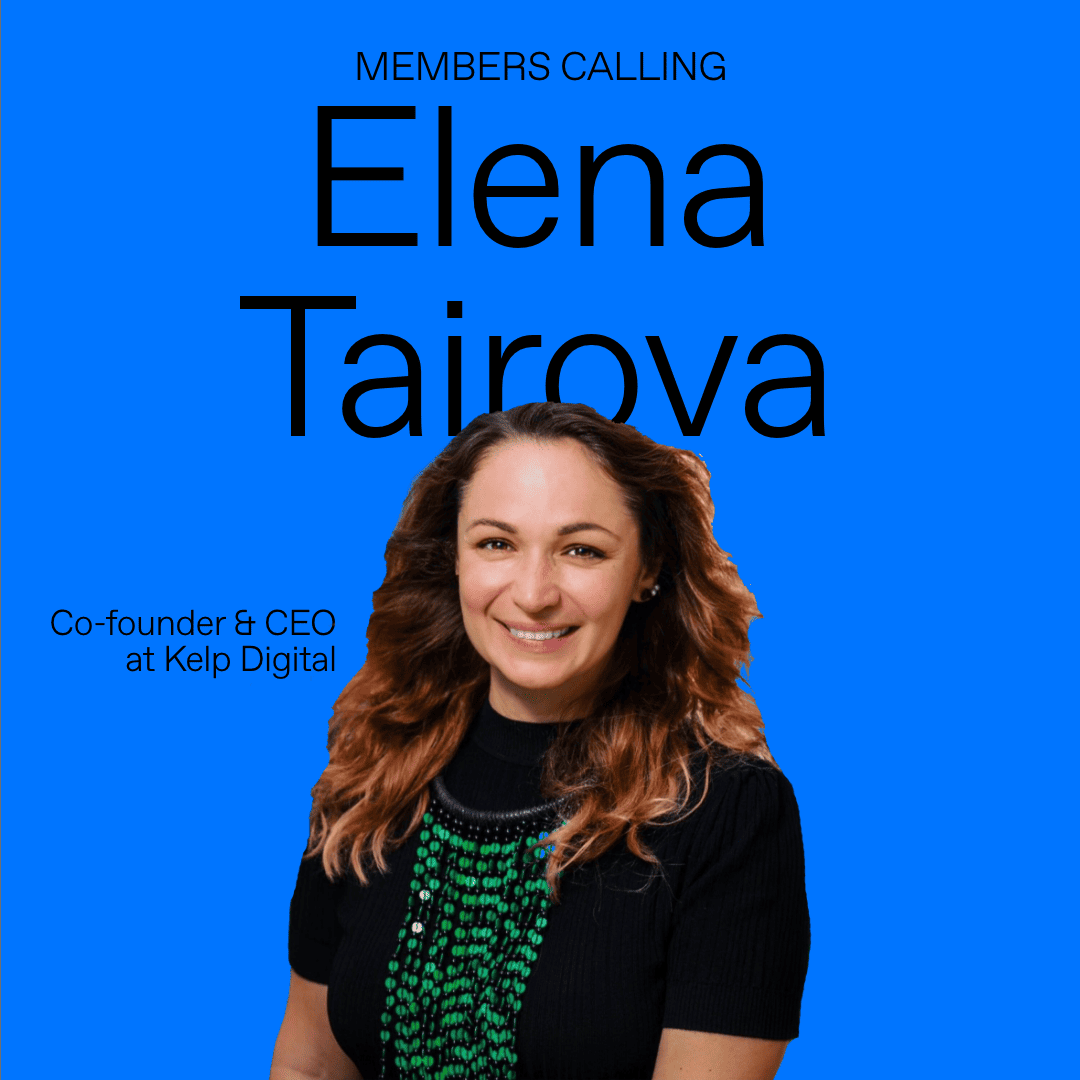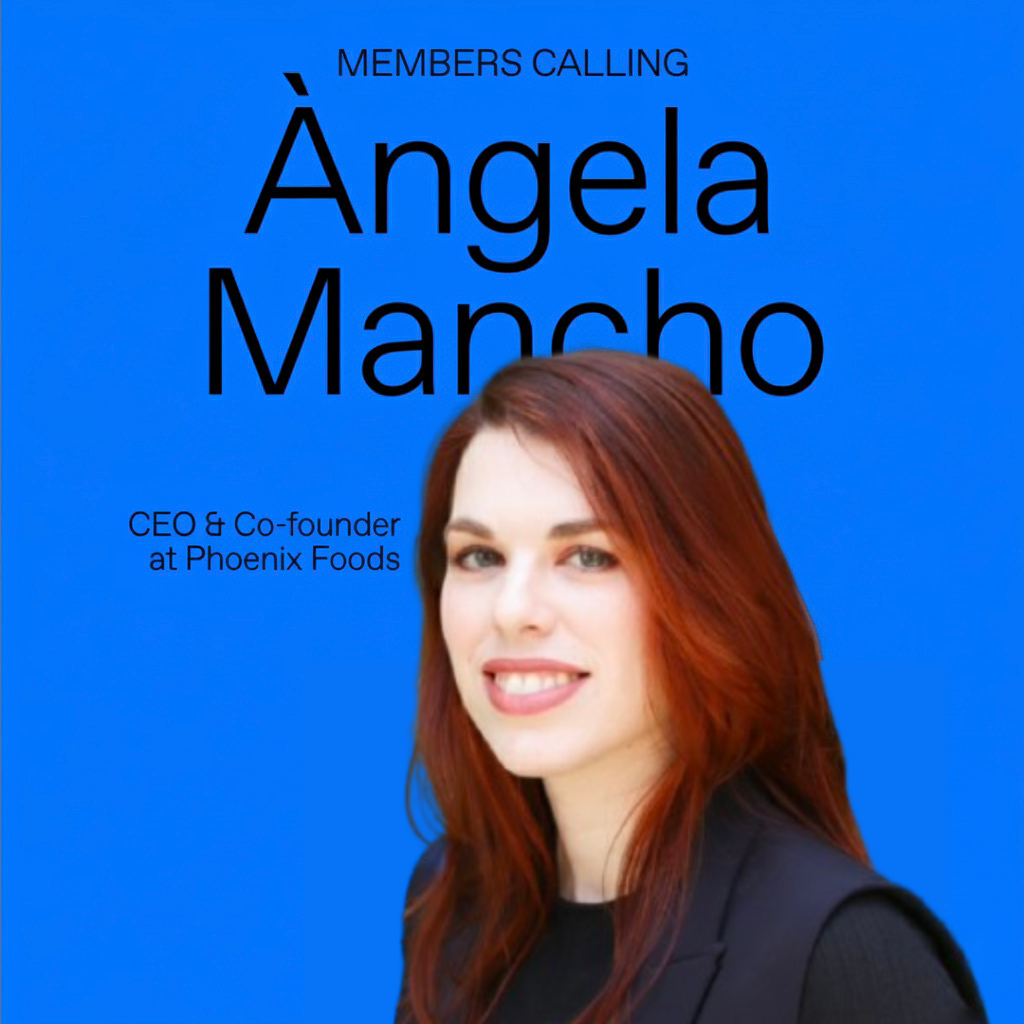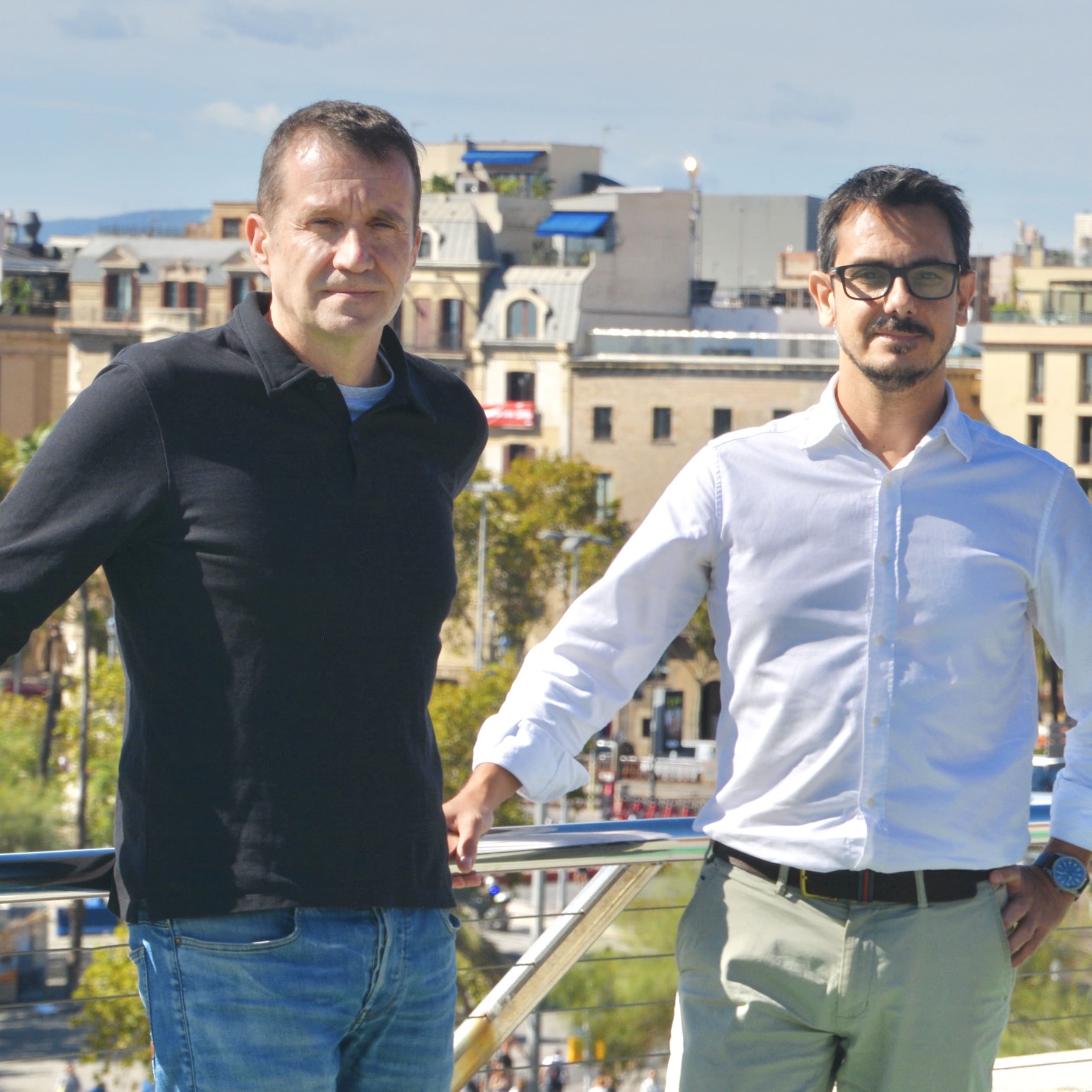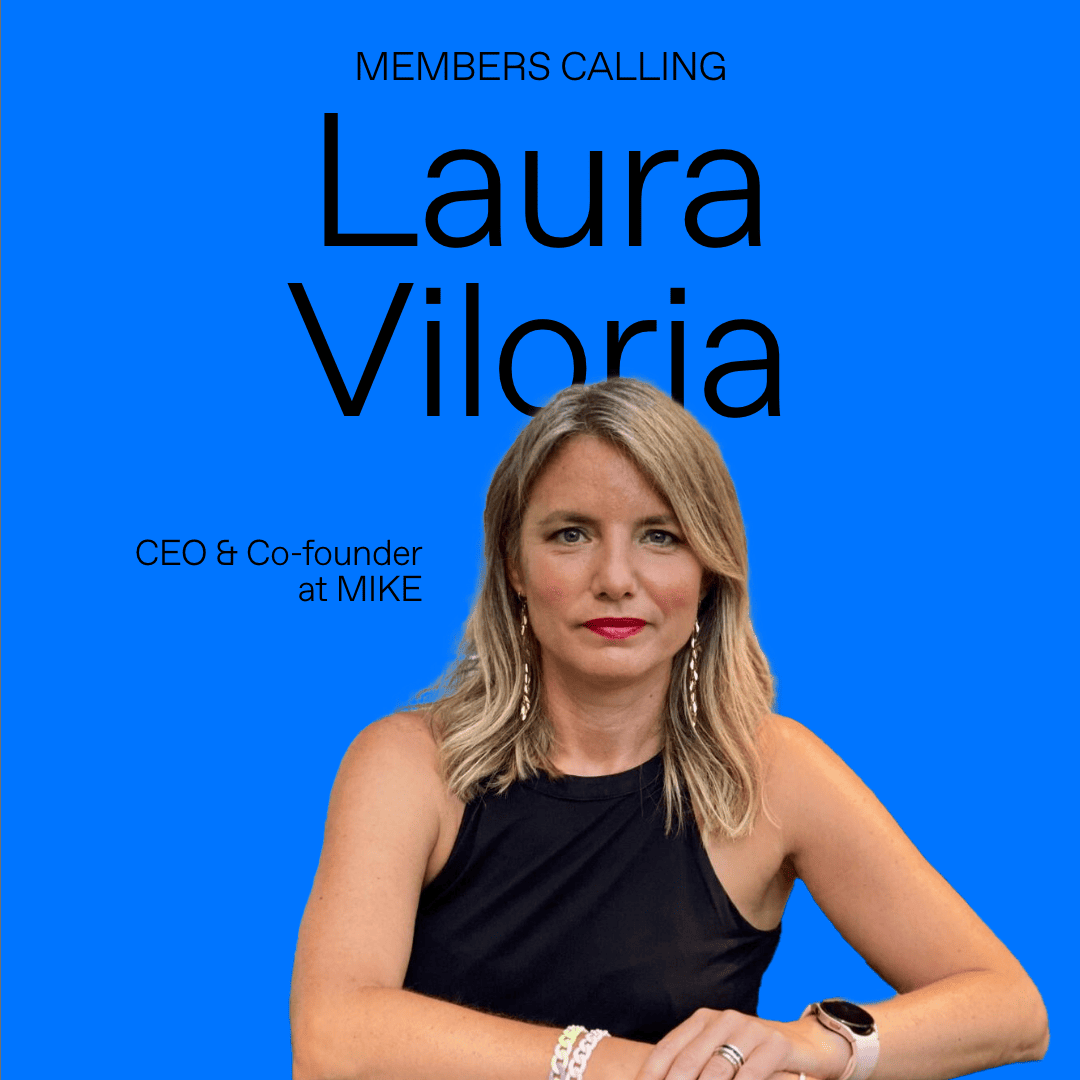Noticias
TB Members Calling #110 | Elena Tairova: “Find your anchor, focus, and move forward”

Born and raised in Russia, Elena Tairova (Kaluga, 1989) has lived and worked all over the place, including London and Beijing, but has been calling Barcelona home for the past seven years. From working in investment banking, marketing and communications, to now being an entrepreneur – Elena has co-founded Kelp.Digital, a software lab for creators. “Your content, your rules”.
TB: What is the purpose of your project?
ET: We build software to help creators of original content (visual art, photography, music) protect their rights, receive the appreciation they deserve, and be able to monetize their work on their terms. Unfortunately, over 90% of creative content shared online is freebooted or stolen, and “it’s easier to ask for forgiveness than to get permission” has become the unspoken rule for online content usage.
We’re working to change that with our state-of-the-art tech that enables creators to easily track and manage their content, protect it from unauthorized use, and open opportunities for monetizations that has previously been overseen.
TB: What stage is it currently at, and where do you see it in two years?
ET: We’ve launched two core products so far: Macula.Link and the Anagolay Network. Anagolay, launched in 2022, is an open-source framework for content ownership and transparent rights management. It lets creators assert their rights and set the rules for how their work can be used. But, right now, we’re putting all our energy into Macula.Link a SaaS also for creators and rightholders that allows you to transform your content library into real-time APIs.
In two years time our goal is to become a market standard for ensuring fair compensation for creative work. We want a future where creators are in charge of their content and also set their own rules for how it’s used, no matter what platform it’s on. Basically, it’s all about making the principle “your content, your rules” a reality for everyone.
TB: A good idea you’ve had.
ET: The first thing that comes to mind is relocating to Barcelona. It heated up the change process in all aspects of my life.
TB: What is the biggest challenge you’ve faced?
ET: Finding motivation when everything falls apart. I’ve experienced my fair share of ups and downs on my startup journey. They say we learn more from our mistakes, and I could probably teach a 3-week Coursera course about mine. So, the most challenging thing for me was not to dwell on my mistakes for too long, but to take the valuable lessons without letting them shake my self-esteem. I had to find my anchor, focus, and move forward.
TB: The best advice you’ve ever received.
ET: Do not do things out of fear but out of love. It may sound a bit hippy, but to me, this principle has a brilliant application in all aspects of life, including business. If you make decisions out of fear of missing out on an opportunity, being outcompeted, or losing in comparison, they are likely to be the wrong ones. Focusing on doing what you enjoy and working towards a purpose you’d love to see realized will give you much better guidance.
TB: A role model.
ET: Meredith Whittaker, current CEO of Signal. She’s a great example of female leadership in tech that stands out in terms of both vision and results achieved. Her recent strategy at Signal is evidence that surveillance capitalism is not the only path forward for the future of technology.
TB: A technology that will shape the future.
ET: In the first place, ClimateTech and Renewable Energy. Innovation and the speed of its adoption in this area will determine the advancement of other sectors, which are becoming increasingly energy-consuming, as well as our overall well-being. Then there’s Quantum Computing, which is still in the early stages of the innovation cycle, but once that breakthrough happens, it will open up possibilities that are now unthinkable. Ultimately, Applied AI. As for GenAI, though initially is way more impressive, its transformative potential will primarily be focused on entertainment and media, which we can only hope it won’t be too devastating for the creative industry as we know it.
TB: Face-to-face or remote?
ET: A mix, with a heavy tilt towards the remote. I’d say 85% remote and 15% in-person. Flexibility, freedom, and self-motivation are key priorities for me and my team. While I value the benefits of remote work, I also believe that occasional face-to-face meetings are essential for connecting, aligning, and building chemistry with the people you’re working with (which is really important to me too).
TB: A startup or company.
ET: Gumroad. They embody the same idea that lies at the core of what we build: empowering thousands of creators to earn a living doing what they love. Not only their software, but Gumroad’s entire company culture and business model is aligned with this idea. I also love the ups and downs of their founders story, which demonstrates resilience and dedication to their core purpose. Now, they have a few million creators earning with their platform, which has allowed them to generate over twenty million dollars in revenue last year.
TB: What makes you disconnect?
ET: Physical activity is the only thing that works for me to either disconnect or focus. I do yoga, go for a jog, or, and when time allows, do water sports. The sea is my absolute love and it always makes me disconnect.
TB: A book to recommend.
ET: ‘¡Silencio!’ by Pedro Bravo. I stumbled upon this book completely by chance in a bookshop in Madrid, and it turned out to be a brilliant find at the right time. I believe it’s a must-read for people in tech. You might agree or disagree with some of the ideas, but it’s a perfect starting point for an important thought process: how do we want technology to shape our future society? In what way?
And an all-time favorite – the ‘Culture Series’ by Iain M. Banks. I love science fiction, because, in order to create something, we need to image it first. In this series, Iain M. Banks did a fantastic job of imagining what human coexistence with self-aware AI could be like.
TB: A series, movie or song that defines your moment in life.
ET: It’s impossible for me to choose just one, as there’s only one constant: change. This week, it’s ‘Till the Sun Comes Up’ by Jack and the Weatherman and ‘Steampunk Pixie’ by Frenchy and the Punk.
TB: A recipe, a restaurant.
ET: ‘Can Mario’ in Badalona. Their specialty is rice, and they truly do magic with it whether it’s paella or risotto. Even if you think you don’t like paella, after trying theirs, you’ll change your mind.
TB: A place in the world.
ET: Fuerteventura. That’s the place that changed my life, setting off a chain of events that led me to move to Spain, start my own business, change and grow in every possible sense. It’s also a paradise for water sports, offering four distinct landscapes within just one hour drive: from white dunes to Martian craters. Every time I visit, I feel light, super-energized and free. It’s an unmatched feeling.
TB: Where would you invest 100k?
ET: In people who believe in what they do and genuinely try to make our world better, what they actually do is less important than their passion, skill and determination.
TB: If you weren’t an entrepreneur…
ET: The thing I love the most is learning: by reading, listening, or by doing. I enjoy absorbing new knowledge and experiences, and then sharing my curiosity and findings with the world. So, I’d choose any occupation that allows me to do this. Being an entrepreneur means constant learning, and sometimes the hard way, that’s why I enjoy it so much. But maybe I could be a traveling scholar or an artist. Given my recent discoveries, I might even consider becoming a yoga or free-breath diving instructor. Or, perhaps, the best option would be a combination of all these.
TB: What does Tech Barcelona mean to you?
ET: A place to connect. It’s a vibrant community that brings together tech talent, entrepreneurs, and everyone involved in supporting the tech startup ecosystem. I also love the mix of local Catalan and Spanish companies with international ones. I’d say, compared to some other European hubs, Barcelona’s startup scene overall still seems a bit more closed and localized, so I appreciate the work Tech Barcelona does to bridge the local startup scene with the global tech community. They’re doing an amazing job of breaking down barriers and creating opportunities for everyone.
I’m just joining the community, so I’m excited to discover more about what Tech Barcelona has to offer.


